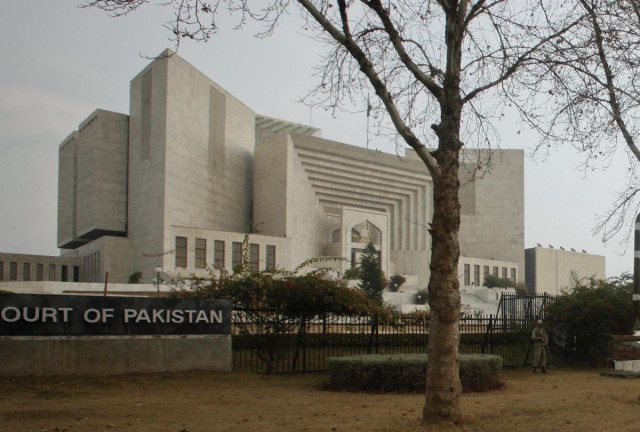Zoning violations: Home should not be where the embassy is: SC
The number of non-conforming uses of residential units in Islamabad is 2,057

A case into non-conforming use of residential units in Islamabad took an unexpected turn on Friday when the apex court inquired about rules and regulations under which foreign missions had been operating in residential areas.
The issue at hand was the denial of the right to free movement of area residents in the face of security arrangements around such facilities.

The two-member Supreme Court bench also gave the capital’s civic agency two weeks to provide a comprehensive report on the extent of the illegal practice, including how often the Capital Development Authority (CDA) exercised discretionary powers to grant special permission for land use violations in residential areas.
The bench, headed by Justice Jawad S Khawaja, was hearing a case filed by a private firm which is operating its business in a residential unit in Sector F-7/4. The firm was previously served a notice by the CDA over the violation, against which it moved the Islamabad High Court. The IHC had decided the case in favour of the CDA, after which the firm moved the Supreme Court of Pakistan.
During the course of the hearing, the counsel for the firm claimed that the CDA grants special permissions for commercial use of residential plots, even though it is not entitled to do so.
When the court asked about security blockades set up in streets and roads by diplomatic missions housed in residential units, the counsel for the CDA said such permissions were granted by relaxing prevailing rules while considering the security situation in the country.
The judges expressed displeasure at the response and Justice Sarmad Jalal Usmani, the other member of the bench, observed that this does not seem to happen anywhere except Pakistan. “Who has given [foreign missions] the right to block public passages under the grab of security… why don’t they move to Diplomatic Enclave,” Justice Usmani observed.
The bench observed that they were aware that the CDA rules the city but did not have knowledge that the authority also formulates rules to give legal cover to its illegalities.
The court ordered the CDA to present a report detailing the number of special permissions granted since 2005 for commercial use of residential units.

“The CDA should also inform that how many such applications it received during this period, in how many cases the permissions were granted or declined, and under what rules.”
The CDA counsel said the authority served over 2,000 notices on land-use norm violators in the recent past.
According to a report compiled by the authority in November 2013, the number of non-conforming uses of residential units in Islamabad is 2,057. The violators include foreign missions, non-governmental organisations, political parties, media houses, educational institutes, private hospitals and clinics, seminaries, and other businesses outlets.
The same report says that around 19 foreign missions are also operating in residential areas. These embassies include Lebanon, Cuba, the Czech Republic, Denmark, Greece, Ukraine, Kazakhstan, Azerbaijan, Oman, Afghanistan, Romania, Bahrain, Jordan, South Africa and Brazil.
Some embassies, United Nations and other non-government organisations have unlawfully closed adjoining streets and roads around their offices, cause great disturbances for the area residents.
In 2008, the CDA had also given special permissions to foreign missions to erect bombproof walls along their boundary walls for security purposes, but such permissions were misused and a number of missions placed them far beyond the permissible limits, using the gap created between the walls to make parking lots.
Published in The Express Tribune, November 29th, 2014.




1724319076-0/Untitled-design-(5)1724319076-0-208x130.webp)














COMMENTS
Comments are moderated and generally will be posted if they are on-topic and not abusive.
For more information, please see our Comments FAQ